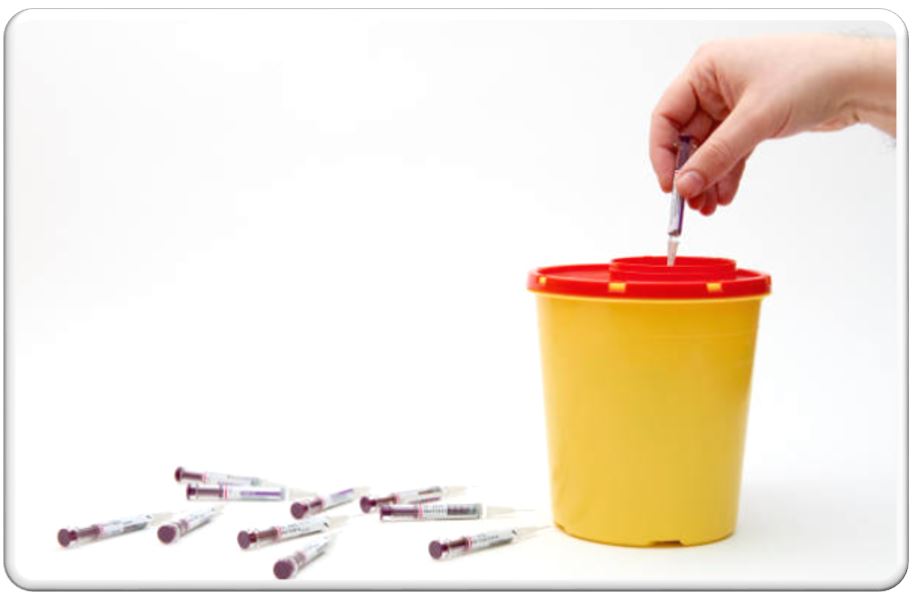- Hold the syringe like a pen, between your forefinger and thumb supported by the third digit.
- Find the deltoid muscle, stretch the site of injection with your other hand (please note, if it's an elderly/frail patient, you may need to pinch the skin and insert to appropriate depth being cautious of the humerus).
- Pierce the skin with the needle at a 90o angle to the skin, and insert needle.
- Deliver the vaccine by pressing the plunger slowly and steadily, do NOT draw back on the needle.
- Withdraw the needle and dispose in the clinical waste disposal sharps bin.
- Apply pressure with gauze, do not rub the site of injection.
- A plaster is not usually applied due to possible allergic reactions.
After vaccination
- Keep the patient seated for 5 minutes after vaccination to assess for any possible signs
 of anaphylactic reaction (WHO state that anaphylaxis can occur between 5-30 minutes see here).
of anaphylactic reaction (WHO state that anaphylaxis can occur between 5-30 minutes see here). - Use this time to record the following information.
- The vaccine name, product name, batch number and expiry date.
- The dose administered.
- The site used.
- The date of vaccination.
- The name and signature of the person administering the vaccination.
- Advise the customer on the signs of allergic reaction and to contact the pharmacy if they have any of these signs or symptoms.
- Advise on how to treat possible pyrexia.
Summary
- Healthcare professionals running a vaccination service must have up to date face-to-face training on administering injections and managing anaphylaxis, within the previous three years. In Wales, the requirement is every two years.
- Vaccines must be stored according to strict protocols, ensuring that the cold chain is maintained.
- Consent must be obtained before administering a vaccine.
- Before administration, vaccines must be checked to ensure they are correct and within expiry date.
- Vaccines and accompanying equipment should be disposed of immediately in a ‘sharps’ box.
